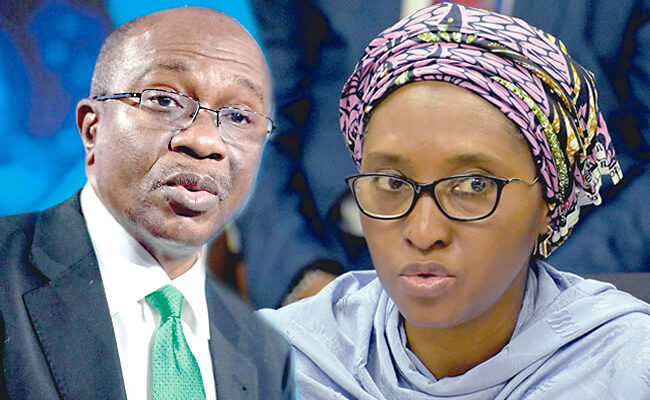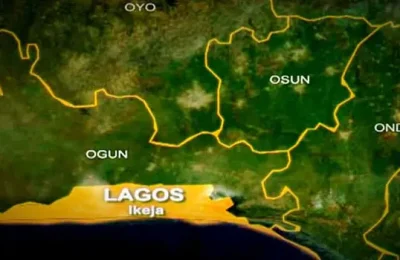


The end of 2022 coincides with the twilight of President Muhammadu Buhari’s second term administration in Nigeria. President Buhari’s administration came to power over seven years ago on a promise to rein in corruption, secure the country, create jobs, and alleviate poverty. CHIMA NWOKOJI takes a look at how some economic indicators performed in 2022 under the watch of the present administration.
2022 will always be a year to remember for many households, businesses, economic thinkers, and policymakers in Nigeria as the year saw blends of economic challenges, ranging from the COVID-19 fiscal stimulus backlash to shocks arising from Russia’s invasion of Ukraine which muted output growth in Nigeria and several other countries; and the far-reaching effect of the blistering monetary policy tightening regime.
In its economic and business environment review for 2022 and agenda for policy makers for 2023, Dr Muda Yusuf, the Director, Centre for the Promotion of Private Enterprise (CPPE), said the political environment has a major impact on economic and business performance.

Inflation
As at January this year, headline inflation was 15.60 percent and rose to a peak of 21.47 percent in November 2022. Meanwhile, food inflation consistently outpaced headline inflation and core inflation during the year. For the basket of goods and services consumed by the average Nigerian, costs have accelerated by between 50 percent and 100 percent in 2022.

According to Dr Yusuf, the inflationary situation was the worst in recent history and the impact on citizens and the Small and Medium scale Enterprises (SMEs) was very devastating. The World Bank reported that five million Nigerians were pushed into poverty in 2022 amid a slump of purchasing power by 35 percent driven largely by surging inflation.
GDP growth
Nigeria’ GDP is valued at over N200 trillion (in nominal terms) as at the third quarter of 2022. It grew by 3.11 percent in the first quarter; 3.54 percent in the second quarter; and decelerated to 2.25 percent in the third quarter. The World Bank projected a growth rate of 3.11 percent for 2022 and 2.9 percent in 2023.
Given the enormity of the macroeconomic headwinds and the numerous fiscal and monetary policy shocks, the Nigerian economy could be adjudged to have demonstrated remarkable resilience in 2022, according to Dr Muda Yusuf.
However, macroeconomic instability, shrinking fiscal space, soaring public debt, heightening inflationary pressures, currency depreciation, foreign exchange illiquidity, surging energy cost, weakening purchasing power, legacy structural constraints, lingering insecurity, and crippling trade facilitation issues slowed down growth.
The following sectors contracted in the third quarter of 2022: crude oil and gas which contracted by 22.67 percent; oil refining contracted by 44.7 percent; coal Mining contracted by 43.5 percent; manufacturing sector contracted by 1.91 percent; food and beverage sector which is one of the most shocking
Foreign exchange management
The foreign exchange (forex) challenge was a major predicament that investors grappled with in 2022. The dimensions of this dilemma, as listed by CPPE, were as follows: sharp currency depreciation; forex market illiquidity, especially at the official window; volatility of the exchange rate, creating considerable uncertainty and unpredictability for investors and transparency issues in the forex allocation ecosystem.
According to the World Bank, the official exchange rates depreciated by 5.2 percent in 2022, as at November, while the parallel market rate depreciated by 40 percent. Parallel market premium widened from 37 percent in January to 71 percent in November 2022. The bank said that “Nigeria exchange rate policy settings are stifling business activities, investment and growth, and amplifying macroeconomic risks.”
Maritime sector issues
The maritime sector is a very crucial sector of the Nigerian economy. It is a sector where reform imperatives have become very urgent. Legacy trade facilitation issues had persisted and become intractable.
Dr Yusuf had said that there was a pressing need to ease the cargo clearing processes and vessel turnaround time at the ports. These are major components of ease of doing business to which the government had severally expressed commitment.
He said the following areas have become priority: shorter vessel turnaround time by reducing delays, curtailing bureaucracy and curbing extortions in the clearance of vessels. Vessel turnaround time should be reduced from the current four weeks to a maximum of one to 10 days. There is also the need for shorter cargo dwell time at the sea ports from the current 20 days to less than one week; deployment of technology at all stages of approvals and documentation, among others.
Foreign exchange reserve
Nigeria’s foreign exchange reserve in January 2022 recorded a $481.4 million decline to close at $40.04 billion, following the $66.17 million decline recorded in December 2021.
Consequently, the foreign exchange reserve fell by 0.40 percent ($150 million) to close December 23 at $36.97 billion from $37.12 billion as at November 28. The decline was due to lower oil prices, sub-optimal oil production and the CBN’s effort to support the currency.
According to the CPPE, the external reserve is unlikely to increase in the short-term due to the country’s inability to benefit from high oil prices due to oil theft as well as CBN’s effort to stabilise the Naira.
This could support rationing and restrictions in the foreign exchange market by the Central Bank and further widen the gap between the official exchange rate and the parallel market rate as demand pressure rises.
Food supply and flooding
The Nigeria Hydrological Services Agency (NIHSA), in its prediction of the 2022 Annual Flood Outlook (AFO), predicted that 233 Local Government Areas (LGAs) in 32 states of the federation and the FCT fall within the Highly Probable Flood Risks Areas, while 212 LGAs in 35 states of the federation including FCT fall within the Moderately Probable Flood Risks Areas. The remaining 329 LGAs fall within the Probable Flood Risks Areas.
There was increased enlightenment and sensitisation campaign for better preparedness on flood mitigation and management, particularly in the flood risk zones in the country. Flooding became a major climate change problem that the country grappled with in 2022, thus disrupting agricultural output and food supply.
Rising incidence of poverty
The Multidimensional Poverty Index (MPI) report issued by the National Bureau of Statistics (NBS) in 2022 put the number of Nigerians living in poverty at 133 million out of a population of over 200 million.
The report painted a grim picture of not only poverty but its impact on children, their health, education and nutrition. Majority of the poor in Nigeria, it showed, are children, as 67.5 percent of children under the age of 18 are poor and 70.1 percent of children under five are poor.
The report expressed worry that children’s education is one of the most impacted by poverty with 57.8 million children of school-going age (six to 15 years old) and 29 percent of all school-aged children not attending school.
The report said 27 percent of all school-aged children are both poor and out of school (with no significant gender disparities), making this a critical area in need of urgent investment.
The report said multidimensional poverty is higher in rural areas, where 72 percent of people are poor, compared to 42 percent of people in urban areas. Approximately 70 percent of Nigeria’s population live in rural areas, yet these areas are home to 80 percent of poor people; the intensity of rural poverty is also higher: 42 percent in rural areas compared to 37 percent in urban areas. Sixty-five percent of poor people (86 million) live in the North, while 35 percent, nearly 47 million, live in the South.
Capital market
In the equities market, bullish momentum dominated proceedings in the first half (H1):2022 as Nigerian Exchange (NGX) All Share Index (ASI) gained 21.3 percent to extend the trend from the prior year.
Relatively low fixed-income yield, impressive corporate earnings, and attractive valuation of new listings topped the catalysts that supported the market performance.
Although this trend was markedly hurt between July and November 2022 due to negative investors’ reactions to aggressive monetary policy tightening and the high inflation rate knock-on effect on corporate earnings, the bourse rallied 7.5 percent in December to close the year at 20.0 percent (Afrinvest projection: 19.1 percent).
Looking ahead, analysts project a modest 7.3 percent return in 2023, driven by cautious trading amidst political transition and fiscal and monetary policy reforms.
Fixed income market
For the fixed-income market, yield momentum picked up noticeably in H2:2022 following four successive episodes of Monetary Policy Rate (MPR) rate hikes by the CBN which prompted the repricing of yields across the ends of the curve.
Afrinvest (West) Agric Limited said it noticed that bond yields rose less steeply than the T-bills. This dynamic, “we believe, was due to the tight liquidity environment, CBN cum DMO’s market rate management in H1 amid aggressive front-loading of supplies, as well as sustained backdoor financing through Ways and Means facility.
“Looking ahead, we expect unfavourable external pricing conditions to keep the FG active in the domestic debt market in 2023 in the face of expected wide budget financing gaps relative to the depth of the local market.
“We do not rule out the possibility of continued W&M financing despite plans to securitise the W&M portfolio. Importantly, we expect monetary policy to be less aggressive in 2023 while inflation should soften, providing the basis for fixed-income yields to taper,” the firm’s analysts stated in a review sent to clients.
Naira redesign
President Muhammadu Buhari, in November 2022, unveiled the redesigned Naira notes for the highest denominations of Nigeria’s currency.
The new notes presented to the public are the 1000, 500 and 200 Naira notes.
The ceremony, held on Wednesday at the council chambers of the State House, Abuja, preceded the weekly meeting of the Executive Council of the Federation.
The CBN said the redesign step was based on the fact that about N2.73 trillion of the N3.23 trillion currency in circulation in Nigeria is outside the bank vaults. This is about 85 percent of the total money in circulation. Also, the Naira is not as secure as it ought to be, as it is easier to counterfeit the N500 and N1000 denominations.
The Deputy Governor, Financial System Stability, Central Bank of Nigeria, Aishah Ahmad, had told the House of Representatives that a total of 500 million mints of the redesigned notes were ordered.
Export
In 2022, the CBN launched its race to $200 billion in foreign exchange repatriation (RT200 FX) initiative to raise $200 billion in foreign exchange earnings from non-oil export over the next three to five years.
The programme arises from the need to diversify Nigeria’s export earnings from oil while addressing declining foreign exchange earnings. So far, the Central Bank of Nigeria’s (CBN) RT200 (Race to $200 billion forex inflows) has recorded $4.987 billion forex inflows..
Cocoa beans, sesamum seeds, cashew, and seven others top the list of agricultural commodities Nigeria exported in 2022, generating N427.6 billion in revenue in nine months, according to latest data from the National Bureau of Statistics (NBS).
On a year-on-year basis, the value of the top agricultural commodities exported increased by 14.9 percent compared to the N372.2 billion recorded in the corresponding period of 2021.
The NBS data also showed that Nigeria’s agricultural export is steadily declining in relation to its contribution to total exports for the year.
In the third quarter of 2022, agricultural exports accounted for 1.42 percent (N84.21 billion) of the total exports valued at N5.93 trillion.
Economic reform for 2023
To unlock growth and investment in 2023, the government must undertake some urgent reforms.
According to the Centre for the Promotion of Private Enterprise, the enactment of the Petroleum Industry Act (PIA) promises to transform the petroleum sector through the creation of a legal and regulatory framework that would inspire much higher levels of investors’ confidence but Nigeria needs to see greater commitment to the implementation of the PIA. The deregulation of the petroleum downstream sector is a major economic reform imperative.
“This is inevitable if we must unlock investment in the sector and put an end to the perennial fuel scarcity and the monopolistic structure of the sector.
“There is a need to also consolidate the power sector reform. An enabling environment must be created to sustain current private sector investment in the sector and attract new private capital to the electricity sector.
“Urgent reforms are vital with respect to electricity tariff, metering and deepening of energy mix. We need robust incentives (fiscal and monetary) to boost private investment in renewable energy,” the Centre’s Director, Dr Muda Yusuf, stated.
Dr Yusuf also believes that Nigeria should reform the budget and appropriation processes to prioritise infrastructure financing and human capital development. This, he said, would boost productivity and competitiveness of the economy.
Adoption of these reform initiatives would guarantee progression towards fiscal consolidation, reduction in fiscal deficit, diminishing need for borrowing and abating debt service burden.
Resetting monetary policy
The current Cash Reserve Ratio (CRR) of 32.5 percent and Monetary Policy Rate (MPR) of 16.5 percent imposed on Nigerian banks by CBN’s Monetary Policy Committee, are among the highest globally.
High CRR in particular has become a key impediment to financial intermediation by the banks. Even more disturbing is the fact that effective CRR is as high as 50 percent or more for some banks, Dr Yusuf lamented.
Financial intermediation is a fundamental function and essence of the banking system in an economy. The high CRR has made it difficult for the banks to play their primary role of financial intermediation.
“We seek a reduction in CRR so that the banks can be better placed to play their primary role of financial intermediation in the economy,” he said.
Expectations
Experts from Financial Derivatives Company Limited said they expect the fall in consumers’ purchasing power to persist in the coming months because of the festive season effect. Short-term interest rates are likely to remain elevated in the near to medium term as the CBN tightens monetary policy.
The pressure on the Naira is expected to persist in the parallel market, while it is anticipated that the CBN would maintain a crawling peg currency management approach at the official market.
The firm further noted that CBN’s intervention in the forex market would see external reserves depleted further. However, an increase in the oil price would likely buffer reserves.
Hence, the external reserve depletion is expected to moderate. The crude oil price is likely to remain high next month. The rise in crude oil prices would be driven by China’s “zero-COVID” policy ease, the EU’s price cap on Russian energy, and the OPEC+’s outcome on its consideration of whether to maintain oil production cuts.
FDC said that in 2023, signs that this economic, market, and financial related turmoil would end soon are far from reality.
The global economy would continue to face these major headwinds, especially from Russia’s invasion of Ukraine, which contributed largely to the energy crisis and global commodity price volatility.
According to FDC analysts, the economic uncertainty created by election expectations, a heavy debt service burden, forex pressures, and inflation are a few of the challenges Nigeria’s economy is facing, which would continue to make the country vulnerable to external shocks.
In addition, adverse weather conditions, rising borrowing and logistics costs, and declining demand in major export markets may subdue economic growth in 2023. According to the EIU projection, the Nigerian economy is expected to grow at 2.8 percent in 2023, down by 1.6 percent from the estimated growth rate of 3.2 percent in 2022.
IMF recommendations
Although, indigenous experts have made some far-reaching recommendations, it is important to adopt and highlight a few of them that are in line with that of the International Monetary Fund (IMF).
In its concluding statement after preliminary findings of staff at the end of an official staff visit, the IMF consultations, under Article IV of the its Articles of Agreement, observed that the double-digit increases in Nigeria’s terms of trade and significant improvement in the trade balance created an opportunity to build fiscal space and foreign exchange (FX) reserves, but that opportunity was not harnessed. Inflation is elevated and fuel subsidies remain a formidable drain on fiscal revenues.
It says Nigeria should undertake bolder fiscal reforms to create policy space. Public finance is under stress with elevated fiscal deficits, high debt servicing costs and public debt projected to increase over the medium term.
There should be urgent revenue mobilisation and fuel subsidy reforms are critical to create much needed fiscal space.
The IMF also recommended the following package of measures, which are estimated to create fiscal savings of close to six percentage points of GDP during 2023-27 while also making room for higher social spending: remove fuel subsidies and address oil theft; step up implementation of tax administration reforms.
The mission welcomed the steady implementation of the tax automation system (TaxPro Max) and recommended stepping up efforts to further expand coverage under a well-designed roadmap and strengthen taxpayer segmentation centering on the Large Taxpayer Offices (LTOs); increase well-targeted social assistance.
To mitigate food insecurity and cushion the impact of high inflation and fuel subsidy removal on the poor, the mission recommended increasing social spending by up to 1.7 percentage points of GDP during 2023-27 in well-targeted programmes in coordination with the World Bank and other development partners. It says fiscal transparency is critical for a sound fiscal policy.
Notwithstanding recent improvements, some gaps remain. While the authorities have published the annual financial reports of the state-owned Nigerian National Petroleum Company (NNPC) Limited since 2019, uncertainties remain regarding the nature of tax write offs and fuel consumption volumes.
The IMF missions decisive and effective monetary policy tightening is a priority to prevent risks of de-anchoring inflation expectations.
Given the multiplicity of monetary policy tools, market segmentation and weak interest rate transmission, the mission recommended the following measures to effectively tighten the monetary policy stance: fully sterilise the impact of CBN’s financing of fiscal deficits on money supply; stand ready to further increase the MPR to send a tightening signal; and continue phasing out CBN’s credit intervention programs, which expanded rapidly during the pandemic to support the economy.
The mission welcomed progress in the securitisation of the CBN’s existing stock of overdrafts and recommended speedy finalisation.
Going forward, it would be important to limit reliance on CBN overdrafts for fiscal financing to the statutory limit of five percent of previous year’s revenues by pursuing fiscal consolidation, better budgetary planning and resorting to supplementary budgets in case of financing shortfalls.
A unified and market-clearing exchange rate, according to the IMF, remains critical to enhancing confidence.
Strengthening the performance of the agricultural sector is key to job creation, food security, and social cohesion. Over the next decade, an estimated 25 million additional jobs would be needed to employ the new labour market entrants.
For agriculture to continue playing a strong role in employment and ensure food security, boosting production and yields through improved input usage, especially through affordable fertilisers and higher quality seeds, better storage facilities and more coordinated policy support across government agencies are recommended.
Addressing corruption remains critical to stimulating investment.
The mission also advised to resolve weak smaller banks and proceed with the winding down of the public asset management company (AMCON) by end-2023, among others.
YOU SHOULD NOT MISS THESE HEADLINES FROM NIGERIAN TRIBUNE
PICTORIAL EXPLAINER: How To Identify Fake New Naira Notes
The Central Bank of Nigeria (CBN) has released security features to help identify fake new naira notes. According to CBN’s template, the Security features to look out for are the following…
Ondo Councils’ Workers Shut Down Assembly Over LG Autonomy
LOCAL government workers under the aegis of Nigeria Union of Local Government Employees (NULGE), Ondo, on Tuesday, stormed the State House of Assembly, threatening a showdown with the lawmakers over the signing of local government autonomy…
FG To Discontinue Cash Withdrawal From Public Accounts
The Federal Government is putting the final touches to all necessary measures to stop cash withdrawal from federal, state, and local government accounts. The Director/Chief Executive Officer of the Nigerian Financial Intelligence Unit (NFIU), Modibbo Hamman Tukur, revealed…
Reps Probe Crude Oil Sales Over $2.4bn Revenue Loss
The House of Representatives on Tuesday unveiled plans to investigate the allegation bothering on the alleged loss of over $2.4 billion in revenue accruing from the illegal sale of 48 million barrels of crude oil export from 2014 till date…
Emefiele/DSS Tango: Falana Asks Judiciary To Treat Civil Liberty Cases Equally
LEADING rights lawyer, Mr. Femi Falana, on Tuesday addressed the controversial move by the nation’s secret police to arrest and detain the embattled Governor of the Central Bank of Nigeria (CBN), Godwin Emefiele…
EDITORIAL: CBN’s New Cash Withdrawal Limits
As a follow-up to its redesign of the N200, N500, and N1000 banknotes, the Central Bank of Nigeria (CBN) recently announced a new policy that mandates deposit money banks and other financial institutions to ensure that…








